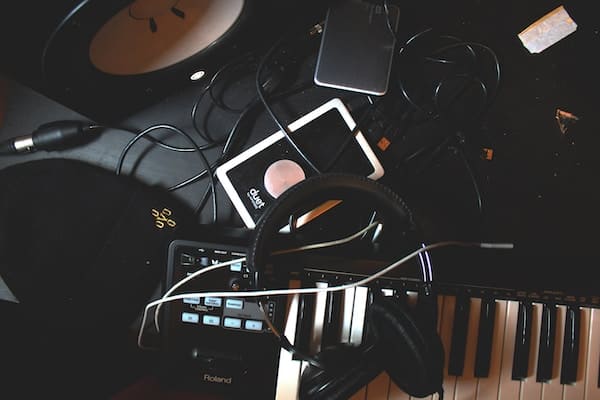Tech News
The Advantages of Having a Background Music License
Music can be a powerful tool in video production. It can evoke emotion and set the tone for your audience.
The best way to use music for your video is through a license. Licensing music creates income for the song’s copyright holders.
A background music license is a one-time, flat fee that allows you to play music in your business. There are four advantages of having this license.

Copyright Protection
You’re risking a copyright infringement lawsuit and potential financial damage when you use copyrighted music without the proper license. That’s why it’s important to always be sure only to use music that has been licensed for your business video production needs.
There are a few ways to avoid needing a background music license, but they all come with risks. One option is to use public domain music, which is music whose copyright has expired. However, this can be tricky because different countries have different rules and regulations regarding what kind of music can be used. Another option is to get permission from each owner who holds a copyright claim on the song you’re using, but this can take weeks or even months.
The best way to avoid these risks and keep your video productions safe is by purchasing a background music license for your videos. Licensing your music gives you peace of mind knowing you’re using legal and high-quality background music. Plus, it opens up new opportunities for your music, such as sync licensing, which can be a huge money-maker and help take your career to the next level. Getting your songs featured in a TV show, major or independent film, commercial, or video game can help you gain immediate exposure and boost your sales.
Legality
Many business establishments use music in their businesses. It can boost their revenue, create a memorable experience for customers and make guests feel more comfortable. But they may need to be made aware that many songs are protected under copyright law and that playing them without a music license is illegal.
When a song is played publicly, the copyright holders (songwriters and artists) have the right to collect royalties from that public performance. This is why it’s important for any business that uses music to pay their PROs for a commercial license or faces copyright infringement charges.
If a business wants to use a song in its video, it will need a different type of music licensing called synchronization. Sync licensing is a great way for musicians to get paid for their work when their songs are used in visual media like tv shows, films, ads, news segments and video games.
To obtain a sync license, musicians need to contact each of the song’s copyright holders and negotiate an agreement. This can be a time-consuming process, thankfully the process can be navigated with ease if you were to hire a copyright attorney, they are experts in the field of law regarding protection of intellectual property and can help to protect or authorise you licences to various material. There are also other licenses, like blanket licenses, that can be more convenient for businesses. But, these types of licenses typically have restrictions that can limit their flexibility.
Convenience
A background music license allows you to use songs for various purposes legally. For example, businesses can play relaxing music in their spas and massage clinics, upbeat music to motivate employees or customers at gyms, or modern music in retail stores for a hip shopping environment. Without a license, these businesses can’t play music in their establishments.
If you’re making a video that features a moving image with a song, you’ll need a different type of license called a synchronization license. This is typically required for videos on YouTube, social media, commercial videos, TV and radio ads or other audiovisual projects with a commercial purpose.
The synchronization license is usually handled by the music licensing agency. They offer a one-stop business music licensing solution called Rightsify, which includes all the different types of music licenses you’ll need for your project.
Whether creating a marketing campaign, making a short film or simply adding background music to your YouTube video, the right type of song can make all the difference to how your audience responds. Having a background music license typically allows you to select the best and most relevant tracks, including royalty free music options, with the assurance that you’re using them legally and ethically. It also saves you time, money, and the hassle of searching for songs independently, while reducing the risk of copyright infringement.
Value
Music is one of the most valuable tools that video marketers and creatives have in connecting with their audiences. But using any song without a license can get expensive and lead to fines for individuals or businesses that need the proper rights and permissions in place. That’s why many video makers choose to use licensed production music in their videos. These music licenses are known as synchronization licenses and are usually part of a larger package that includes not just a single track but an entire library of tracks.
This type of licensing allows video-makers to avoid paying a royalty for each song they use in their video productions. But they do have to pay a licensing fee to the Performing Rights Organizations (PROs) that represent the songwriters of the songs in their library. And that can add up quickly when the average song has several songwriters represented by different PROs. Many business background music providers offer their customers a subscription license to a library of copyright-free music that eliminates the need to pay royalty fees on a song-by-song basis. That can save companies a lot of money in the long run. However, it’s still important to know how much you are paying and what you can do with the songs in your library before purchasing a commercial background music license.





